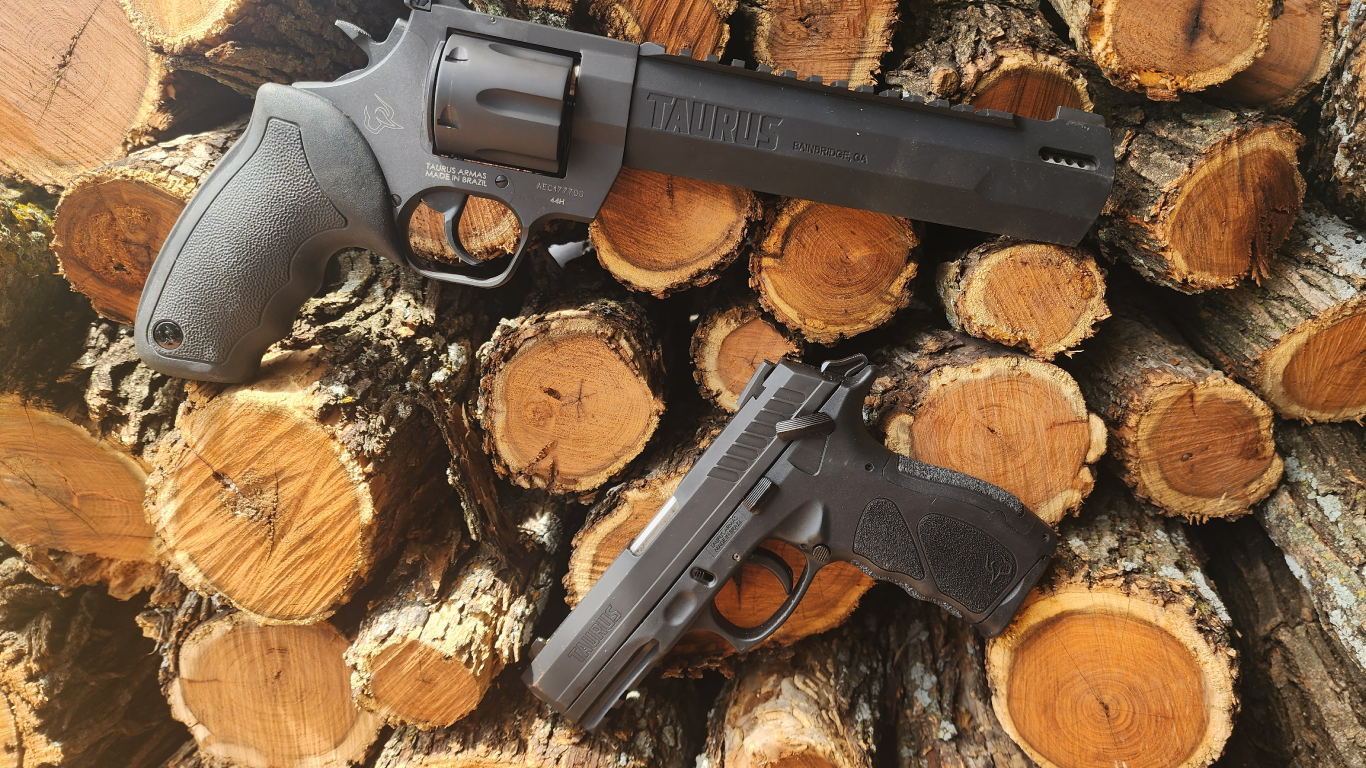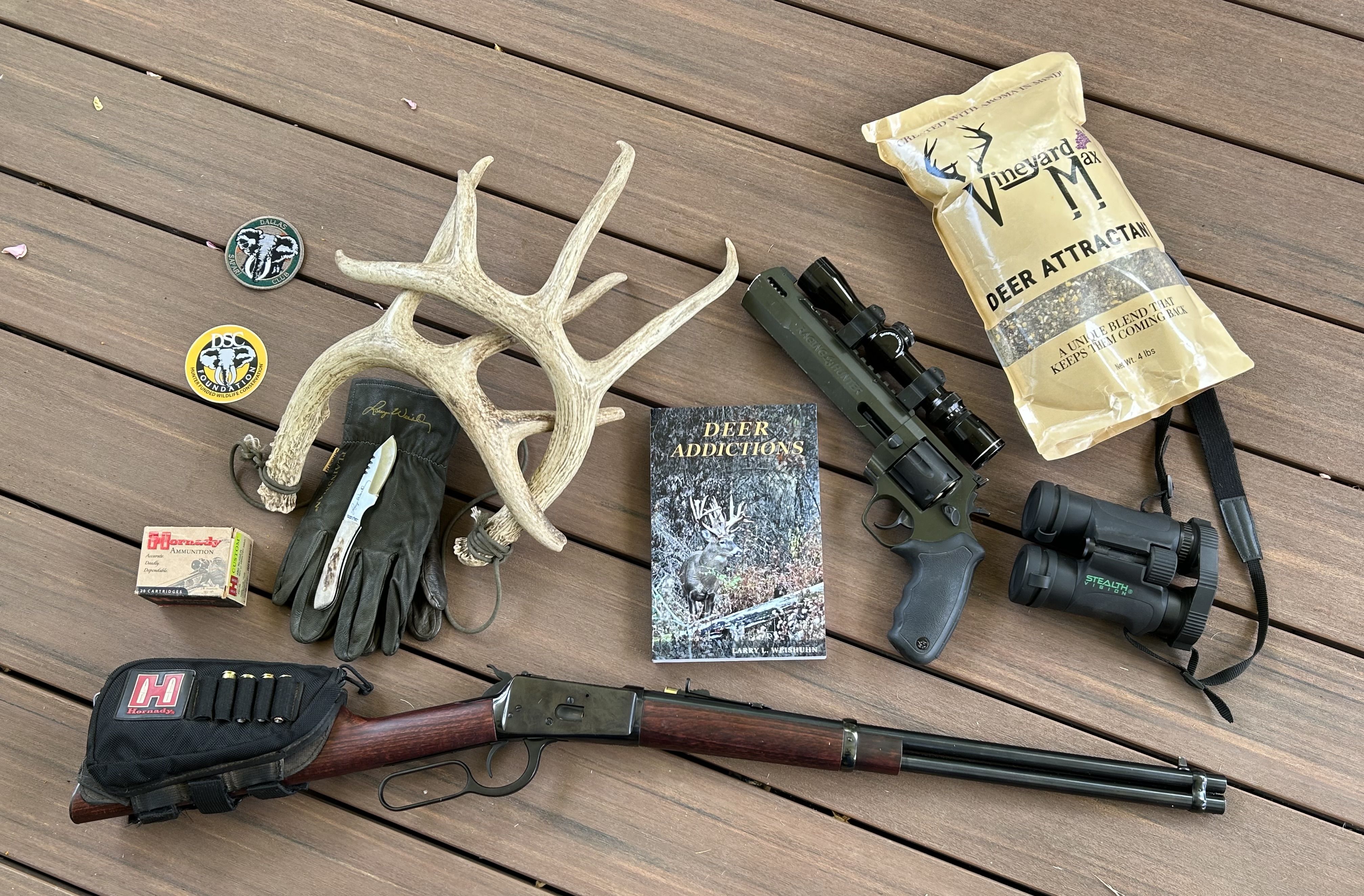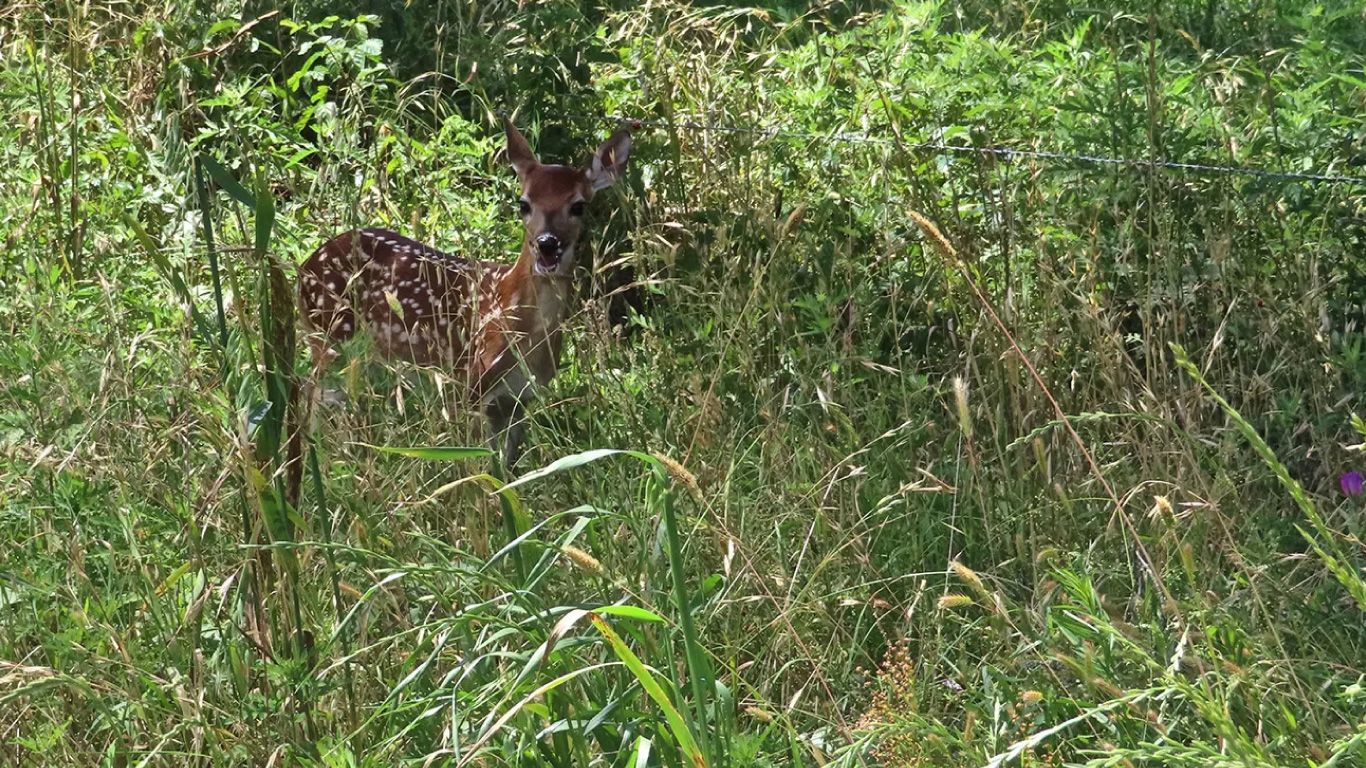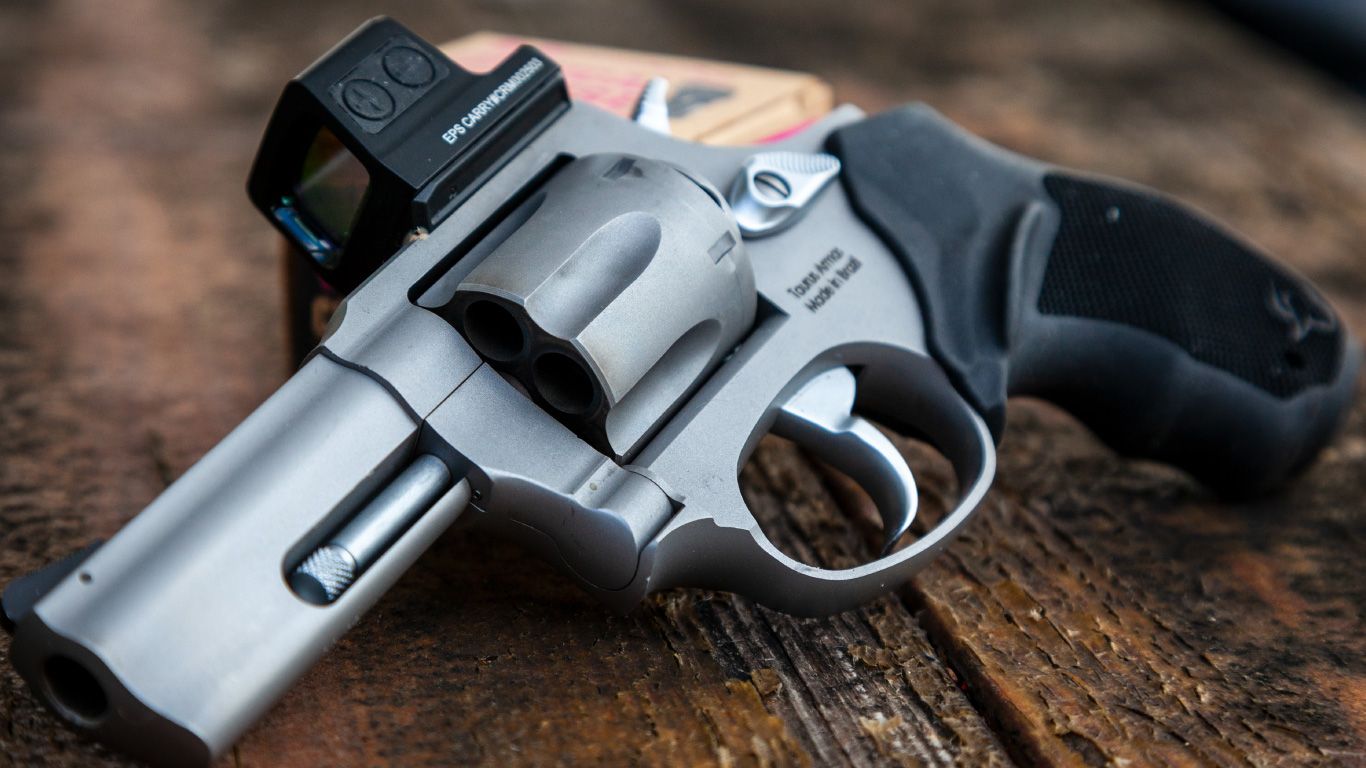by Kat Ainsworth Stevens
Handgun hunting is on the rise, and that doesn’t only apply to the guys that choose to swap out their rifles for pistols. For years now women have been shooting and buying guns with greater frequency, and it’s past time we started making a more definite mark on the hunting world as well. Hunting with handguns is a terrific way to not only put your hard-won pistolcraft skills to work, it’s also a nice way to get some peace and quiet—all while finding ways to fill the freezer with free-range, organic meat. We have some tips and tricks for handgun hunting for women as well as suggestions of where to get started.
Why did we feel the need to add this rule? The simple reality is that Cooper’s excellent rules assume responsible, lawful gun owners, and we instituted the fifth rule to ensure that always remains the case. We are responsible for our guns, and preventing unauthorized access to them is a prerequisite to ensuring Cooper’s rules are always followed as far as our guns are concerned.
What’s handgun hunting—and is it legal?
When the average person thinks of hunting it tends to involve deer and rifles. There’s a lot more to hunting than whitetails and long guns, though. Handguns of all types can be used for hunting, including striker-fired semi auto handguns, 1911s, bolt-action pistols, and single action or double action revolvers. The general criteria include the caliber being large enough to ensure a clean, ethical kill and the barrel length—and your skills—being up to solid shot placement.
It’s legal to hunt certain predators and game animals with handguns in most states with the specifics varying by location. These laws are constantly changing, so it’s wise to check out the local regulations before planning a handgun hunt of any kind. With a few exceptions, you can legally hunt specific animals using a handgun in most of the United States. It’s your job to check out the local laws and regulations—remember, claiming ignorance of the law is never a legitimate legal defense.
What handgun is best for women who hunt?
Much like choosing a handgun for self-defense, the handgun you use for hunting needs to fit your hand size, skills, and needs. It’s a good idea to make sure the gun in question is a large enough caliber for the animal you’re hunting—in fact, it’s a must—and you might be surprised by how well you can handle big bores. Here are some tips to mastering big bores for hunting: · Padded shooting gloves can protect your fingers from excessive recoil and create a more comfortable shooting experience. · Practice is vital. The more time you spend at the range with your hunting handgun the greater your accuracy and confidence. · Shooting from a rest is smart, and not only at the range. If you’re shooting seated on the ground, you can use shooting sticks of the correct height and if you’re in a blind you can utilize a window or other rest. · Learning to shoot your handgun prone is helpful, too, because you never know what angle you’ll need to take a shot from. In addition, shooting prone gives you the ground as a built-in support. · Using lighter-recoiling ammunition can be a great idea. Just because you’re handgun hunting doesn’t mean you need the heaviest hardcast on the market. Find a load suitable for hunting and go with it. There’s nothing wrong with hunting using a lighter-weight bullet or load in general to cut back on felt recoil or muzzle rise. · Hunting with a handgun with a longer barrel helps cut back on felt recoil and muzzle rise and can also improve ballistics and accuracy.
The reality of big bores for handgun hunting is that they don’t have to be magnums. A 44 Magnum isn’t a must for hunting—you can get a 10mm like the Taurus TH10. 10mm is a hunting-capable caliber for a wide variety of animals including feral hogs and whitetail deer. One of the things that makes the TH10 ideal is its 15 +1 capacity which is a must if you’re chasing a sounder of feral hogs. It also produces more manageable recoil for small hands than many—if not most—magnums and can be a versatile pistol that does more than just hunting. That’s not the kind of option you’re going to get out of a long-barreled magnum revolver which is simply one of many reasons 10mm is worth considering.
Should women get revolvers for hunting?
It’s a cliché to say a woman’s first gun should be a revolver, and it’s a cliché to claim handgun hunting can only be done with a revolver. That said, magnum revolvers are excellent for handgun hunting. This is especially true when they boast long barrels like the 8.47-inch barrel on the Taurus Raging Hunter. In fact, the Raging Hunter is a well-balanced, accurate revolver that’s a stellar choice for hunting. It’s also offered in quite a few calibers including 357 Magnum, 44 Magnum, 454 Casull, and 500 Smith & Wesson. The length of the barrel does make it more of a challenge to shoot precisely offhand, so take the time to invest in some stable shooting sticks. Handgun hunters get a lot of mileage out of good shooting sticks and using them creates a far steadier foundation for accurate shots than you’ll otherwise have. Of course, they’re not a must—you can shoot long-barreled handguns accurately without shooting sticks, but you’ll probably want a rest of some sort.
What do you need to get started handgun hunting?
Aside from the right handgun and some general shooting skills, there are a few things you need to go handgun hunting. In most cases you’ll need a current hunting license—“most” because in some states there are situations where you can shoot pests like hogs on private land without a license—which typically requires getting your hunter’s education certification. The specifics of hunter’s education and the license depend on the state where you intend to hunt. You’re also going to need the right ammunition, a knife for field dressing, and a lot of patience. Handgun hunting means getting closer to your prey, and that tends to take more skill and effort than longer shots with rifles.
Here's what you don’t need to handgun hunt. You aren’t required to have head-to-toe camouflage, fancy hunting boots, face paint, or extensive experience. The ability to make a clean, precise shot is necessary, and anything beyond the tools and skills to get that done is optional. I’ve successfully handgun hunted whitetail deer in leggings and my favorite hoodie while leaning against a fence post. (The trick to not using camo is to hold still, which is also the trick to success while wearing camo.) Don’t let the lack of hunting attire or boots stop you from handgun hunting.
Also, don’t let a lack of experience field dressing or processing meat hold you back. There are countless tutorials online for field dressing and you can always take the meat to a shop to be processed if you’d rather not do it yourself. And if you’re concerned about the overall weight of dragging an animal like a massive boar or a big buck, there are tricks to that, too. Worst case scenario, you use the internet to learn how to quarter the animal so you can simply carry it to your vehicle in manageable pieces. There’s always a way to get these things done.
Should you try handgun hunting?
If you have an interest in healthy, tasty game meat it’s worth learning to hunt with handguns. Using handguns to hunt does tend to require more skill than using rifles or shotguns due to the distance at which shots are taken, but it’s enjoyable. It’s like the perfect crossover of tactical skills and hunting where you can sharpen both sets of skills at the same time. You can learn to handgun hunt and hit the fields and woods entirely on your own. What’s stopping you?


















